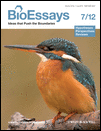
Open Life Sciences
Scope & Guideline
Unlocking Knowledge for a Healthier Tomorrow
Introduction
Aims and Scopes
- Molecular Biology and Genetics:
Research in this area includes studies on gene expression, molecular mechanisms of diseases, and genetic polymorphisms, often utilizing techniques like CRISPR, RNA sequencing, and bioinformatics. - Cell Biology and Physiology:
Focuses on cellular processes, signaling pathways, and cellular responses to external stimuli, including studies on stem cells, apoptosis, and cellular metabolism. - Microbiology and Immunology:
Investigations into microbial diversity, pathogenic mechanisms, and immune responses, including the role of gut microbiota in health and disease. - Plant Sciences and Agriculture:
Research on plant biology, including genetic studies on crop resistance, phytochemistry, and sustainable agricultural practices, often addressing environmental challenges. - Clinical and Translational Medicine:
Studies that bridge laboratory findings to clinical applications, focusing on disease mechanisms, therapeutic approaches, and clinical outcomes. - Environmental and Ecological Sciences:
Research addressing ecological impacts, biodiversity, and the effects of environmental changes on various biological systems. - Biotechnology and Bioengineering:
Innovations in biotechnological applications, including drug development, biomaterials, and novel therapeutic strategies.
Trending and Emerging
- Artificial Intelligence and Machine Learning in Biomedical Research:
There is a significant increase in studies utilizing AI and machine learning techniques for data analysis, predictive modeling, and improving diagnostic processes in healthcare. - Microbiome Research:
Research focusing on the human microbiome and its relationship with health, disease, and therapeutic outcomes is gaining traction, reflecting a broader interest in personalized and preventative medicine. - Gene Editing and CRISPR Technology:
The application of CRISPR and other gene-editing technologies is a rapidly growing area, with numerous studies exploring their potential in therapeutic interventions and genetic modifications. - Sustainable Agriculture and Biotechnology:
Emerging themes include research on environmentally sustainable agricultural practices and innovative biotechnological solutions to enhance crop resilience and productivity. - Regenerative Medicine and Stem Cell Therapy:
An increase in publications focusing on regenerative medicine, including stem cell research and tissue engineering, highlights the journal's commitment to advancing therapies for degenerative diseases. - Health Informatics and Big Data in Health Research:
The integration of big data analytics and health informatics in research studies is trending, as researchers seek to leverage large datasets for insights into public health and clinical outcomes.
Declining or Waning
- Traditional Pharmacology:
Research heavily focused on conventional pharmacological approaches is declining, as there's a growing interest in personalized medicine and alternative therapeutic strategies. - Basic Ecological Studies:
While still important, purely descriptive ecological studies are becoming less prominent, with a shift toward research that integrates ecological data with applied science and conservation strategies. - Historical and Comparative Studies in Biology:
There is a noticeable decrease in papers focusing on historical analysis or comparative studies across species, possibly due to the increasing emphasis on cutting-edge experimental techniques and data-driven research. - Animal Behavior Studies without Clinical Relevance:
Research focusing solely on animal behavior without implications for health or disease management is witnessing a reduction, as more studies aim to connect behavioral science with health outcomes.
Similar Journals

BIOESSAYS
Elevating Knowledge in the Life SciencesBIOESSAYS, published by WILEY, is a leading academic journal dedicated to the dynamic fields of biochemistry, genetics, and molecular biology. With an impressive impact factor and recognized as a Q1 journal in its category for 2023, it ranks 49 out of 221 in the Scopus database, placing it within the 78th percentile among its peers. Since its inception in 1984, BIOESSAYS has served as a vital platform for researchers, professionals, and students, facilitating the dissemination of pivotal findings, innovative theories, and review articles that shape the current understanding of biological sciences. Although it does not offer open access, the journal remains key for those seeking to stay at the forefront of scientific discovery and discussion within this ever-evolving discipline. With its commitment to high-quality, peer-reviewed content, BIOESSAYS continues to influence future research directions and academic discourse.

International Journal of Biological Sciences
Fostering Innovation Across Biological DisciplinesInternational Journal of Biological Sciences (ISSN: 1449-2288, E-ISSN: 1449-2288) is a premier open-access journal published by IVYSPRING INTERNATIONAL PUBLISHING since 2005, located in Australia. With a commitment to advancing knowledge in the life sciences, this journal covers a wide spectrum of disciplines, including Applied Microbiology and Biotechnology, Cell Biology, Developmental Biology, Ecology, Evolution, Behavior and Systematics, and Molecular Biology, earning a distinguished Q1 ranking in these fields as of 2023. It stands out with exceptional Scopus rankings, placing in the top ranks across multiple categories, such as the 98th percentile in Ecology, Evolution, Behavior and Systematics and the 94th percentile in Applied Microbiology and Biotechnology. The journal fosters an open access philosophy, ensuring that research findings are readily available to the scientific community and the public, and invites original research articles, reviews, and commentaries. With its mission to disseminate high-quality research, the International Journal of Biological Sciences serves as an essential resource for researchers, professionals, and students seeking to deepen their understanding and drive innovation in biological sciences.

Biologia Futura
Elevating Knowledge in Biochemistry and BeyondBiologia Futura, an esteemed journal published by SPRINGER HEIDELBERG, serves as a vital platform for researchers and professionals in the fields of Agricultural and Biological Sciences, as well as Biochemistry, Genetics, and Molecular Biology. Established in Hungary, this journal has been at the forefront of scientific inquiry since its inception in 2019 and continues to contribute significantly to advancing knowledge through rigorous peer-reviewed articles. With current rankings placing it in the second quartile for Agricultural and Biological Sciences and third quartile for Biochemistry, Genetics, and Molecular Biology according to Scopus metrics, it reflects a robust academic quality and reach. Scholars are encouraged to share their original research, reviews, and innovations that intersect these dynamic fields. Although not an open access publication, Biologia Futura ensures wide dissemination of high-impact research from its notable address at Tiergartenstraße 17, D-69121 Heidelberg, Germany, aiming to foster collaboration and discovery within the global scientific community.

All Life
Fostering Innovation in Agricultural and Biological ResearchAll Life is a distinguished academic journal published by TAYLOR & FRANCIS LTD, based in the United Kingdom, focusing on the interdisciplinary realms of agricultural and biological sciences, biochemistry, genetics, and neuroscience. With the ISSN 2689-5293 and E-ISSN 2689-5307, this open-access journal aims to disseminate high-quality research from 2020 to 2024, facilitating a wider reach and impact across various fields. Notably, it holds a Q3 ranking in both Agricultural and Biological Sciences, as well as Biochemistry, Genetics and Molecular Biology, and a Q4 ranking in Neuroscience, reflecting its growing presence in these disciplines. All Life aims to foster collaboration among researchers, professionals, and students, encouraging innovative approaches in understanding life sciences. By delivering timely insights and thought-provoking discussions, the journal plays a crucial role in advancing knowledge and promoting interdisciplinary dialogue in the evolving landscape of life sciences research.

BIOLOGY BULLETIN
Bridging Gaps in Biological Research for Global Impact.BIOLOGY BULLETIN is a prominent academic journal published by PLEIADES PUBLISHING INC, dedicated to advancing the fields of Agricultural and Biological Sciences as well as Biochemistry, Genetics, and Molecular Biology. With an ISSN of 1062-3590 and E-ISSN of 1608-3059, the journal has been a vital resource for researchers and professionals since its commencement in 1996. Located in the United States, BIOLOGY BULLETIN operates within a highly competitive academic landscape, achieving a 2023 ranking in the Q3 quartile for Agricultural and Biological Sciences and Q4 for Biochemistry, Genetics, and Molecular Biology, highlighting its commitment to delivering impactful research despite its challenges. Researchers seeking to publish their findings will find a platform for significant insights, as reflected in its Scopus rankings, where it stands at #183 and #199 out of 221 in its respective categories, showcasing opportunities for growth and visibility. While currently not an open-access publication, BIOLOGY BULLETIN plays a crucial role in facilitating scholarly communication and fostering an understanding of biological sciences, making it an essential read for academics, professionals, and students alike.

Frontiers in Bioscience-Landmark
Uncovering Landmark Research in Life SciencesFrontiers in Bioscience-Landmark is a prestigious journal published by IMR PRESS that focuses on a diverse array of topics within the fields of biochemistry, genetics, molecular biology, immunology, and microbiology. With the ISSN 2768-6701 and E-ISSN 2768-6698, this journal has carved a significant niche since its inception in 1996, making its mark in contributions to the scientific community all the way through to 2024. Having achieved a respectable Q2 cohort rank in multiple categories, including biochemistry and immunology, it stands out for its impactful research, evidenced by its current Scopus rankings which highlight it as a vital resource for ongoing studies and advancements in the biosciences. Despite not being open access, the journal ensures that readers have access to high-quality research articles that are peer-reviewed and designed to foster academic discourse. The importance of Frontiers in Bioscience-Landmark lies in its commitment to disseminating innovative findings that can significantly enhance our understanding of biological sciences, making it an essential read for researchers, professionals, and students alike.

FEBS Open Bio
Unlocking the potential of open-access scientific discovery.FEBS Open Bio is a leading open-access journal published by Wiley, dedicated to advancing our understanding of biochemistry, genetics, and molecular biology. Since its inception in 2011, this journal has provided a robust platform for researchers to share their findings with a wider audience, ensuring the dissemination of high-quality scientific knowledge. With an impact factor reflecting its stature in its field, FEBS Open Bio is ranked #77 out of 221 in general biochemistry, genetics, and molecular biology, placing it in the 65th percentile among its peers. This journal serves as an essential resource for professionals, researchers, and students alike, fostering collaboration and innovation within the scientific community. The commitment to open access not only enhances visibility but also promotes transparency in research, making it a vital contributor to the ongoing dialogue in biochemical and molecular biological sciences. For those looking to stay at the forefront of research developments, FEBS Open Bio is a key publication addressing the latest trends and discoveries in the field.

Applied Biological Research
Exploring Interdisciplinary Pathways in BiologyApplied Biological Research is a dynamic journal issued by the CENTRE ADVANCEMENT APPLIED SCIENCES, specializing in the interdisciplinary fields of biochemistry, genetics, and molecular biology. With its ISSN 0972-0979 and E-ISSN 0974-4517, this journal serves as a critical platform for the dissemination of peer-reviewed research that addresses pressing challenges and innovations within biological sciences. Although currently it does not adopt an Open Access model, it is dedicated to fostering academic discourse through rigorous publication practices. The journal's impact is underscored by its Scopus rankings, which place it in the 4th and 2nd percentiles in respective categories, emphasizing its emerging influence in the scientific community. Covering research from 2020 to 2024, Applied Biological Research is positioned as an essential read for researchers, professionals, and students seeking to stay at the forefront of biological research and application. Based in the beautiful region of Jammu & Kashmir, India, this journal is committed to advancing applied sciences through innovative research and outreach.

BIOLOGICAL RESEARCH
Transforming research into accessible knowledge.BIOLOGICAL RESEARCH is a prestigious, peer-reviewed journal published by the Société de Biologie de Chile, dedicated to advancing the fields of Agricultural and Biological Sciences, Biochemistry, Genetics, and Molecular Biology, and Medicine. With an impressive ranking in the top quartile (Q1) in these categories as of 2023, this journal maintains high academic standards and visibility, making it a vital resource for researchers and professionals alike. Operating under an Open Access model since 2013, it ensures that research findings are freely accessible to a global audience, promoting the dissemination of knowledge and collaboration across disciplines. With a publication history dating back to 1992 and continued updates until 2024, BIOLOGICAL RESEARCH serves as a crucial platform for innovative research that impacts both scientific and healthcare communities. The journal’s commitment to quality and relevance is evidenced by its competitive performance in Scopus rankings, further solidifying its role as a leading journal within the biological sciences.

Microbial Cell
Exploring the dynamic world of microbiology and beyond.Microbial Cell is a distinguished open-access journal published by SHARED SCIENCE PUBLISHERS OG, focusing on the dynamic fields of microbiology, biochemistry, and molecular biology. Since its establishment in 2014, Microbial Cell has been at the forefront of disseminating cutting-edge research essential for advancing our understanding of microbial functions and interactions. With a commendable impact factor and ranking in the top quartiles (Q1 and Q2) across several categories, including Applied Microbiology and Biotechnology and Parasitology, this journal serves as an invaluable resource for researchers, professionals, and students alike. It features a comprehensive scope that encompasses the latest findings in genetics, cell biology, and virology, facilitating the academic community's access to high-quality peer-reviewed work. Microbial Cell not only contributes to advancing microbial sciences but also fosters an inclusive platform for knowledge sharing and collaboration in the scientific community.